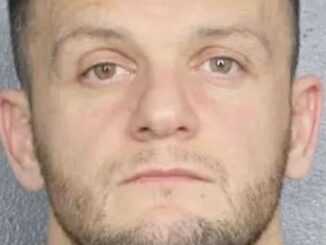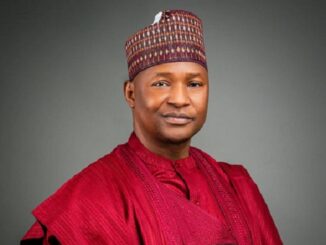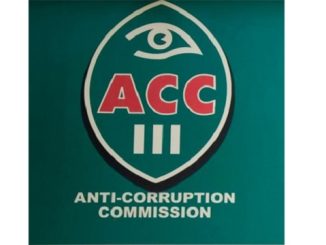
More than two and a half years after the first arrests, two verdicts in the first trial in the FIFA corruption case came down on Friday.
Jose Maria Marin, the former president of the Brazilian soccer federation, and Paraguayan Juan Angel Napout, the former Conmebol president, were found guilty on various conspiracy charges in the case brought by U.S. authorities in Federal court in Brooklyn.
Marin was accused of accepting $6.55 million in bribes and found guilty on six counts of racketeering conspiracy, wire fraud and money laundering conspiracy. He was found not guilty on one count of money laundering conspiracy. Napout, accused of accepting $10.5 million in bribes, was found guilty on three counts of racketeering conspiracy and wire fraud conspiracy but found not guilty on two other counts of money laundering conspiracy.
One case pending. A third defendant, former Peruvian soccer federation president Manuel Burga, was charged with one count of racketeering conspiracy. After six days of deliberations, the jury has not yet reached a verdict. It was ordered to resume deliberations after Christmas.
Meanwhile, U.S. District Court Judge Pamela K. Chen ordered Marin and Napout, who had been under house arrest, to be immediately jailed, pending sentencing, saying they were flight risks now that they had been convicted.
Napout, Marin and Burga are among 40 soccer officials and marketing executives who were indicted or reached agreements in connection with widespread schemes to obtain media rights to major competitions in Concacaf and Conmebol and World Cup qualifying matches. Since the conspiracies involved meetings that took place in the United States or money that went through U.S. banks, U.S. authorities could claim jurisdiction.
Cooperating witnesses. The key witness was Alejandro Burzaco, the former CEO of Argentine sports marketing company Torneos y Competencias. Another witness was former Colombian soccer federation president Luis Bedoya, who agreed to testify on the understanding he could be placed in the Federal witness protection program.
While the case began when the late Chuck Blazer, the American general secretary of Concacaf and FIFA executive committee member, agreed to cooperate, the key break came when Brazilian businessman Jose Hawilla, the owner of Traffics, agreed to wear a wiretap for the FBI to make recordings used at the trial. As part of his plea agreement, Hawilla agreed to forfeit more than $150 million.
There have been 23 guilty pleas so far in the case. Others are fighting extradition, most notably Trinidadian Jack Warner, the former head of Concacaf, and Brazilian Ricardo Teixeira and Paraguayan Nicolas Leoz, who along with the late Argentine Julio Grondona, were the dominant figures in South American soccer.
Three successive heads of Concacaf and Conmebol, beginning with Warner and Leoz, were indicted or pleaded guilty. The most elaborate criminal enterprise involved three marketing firms teaming up in a $110 million bribery scheme related to the sale of Copa America marketing, sponsorship and broadcast rights, including the Copa Centenario held in the USA in 2016. They intended to pay off the presidents of all 10 South American federations.
Kevin Jonas testimony. Among those who testified were U.S. Soccer executive Jay Berhalter, who was the point-person in running the Copa Centenario, which U.S. Soccer kept afloat after indictments hit in May and December 2015. Another witness was pop star Kevin Jonas, called to testify about a Paul McCartneyconcert held in Argentina in 2010. There was testimony that Napout had been bribed tickets for the concert, but his attorneys would not even agree to stipulate the concert took place, hence the testimony of Jonas, who attended the event.
The most explosive testimony came from Burzaco. Burga, the lone defendant not yet found guilty, was accused of making death threats against Burzaco in the courtroom. An Argentine lawyer who had worked on soccer television rights in Argentine killed himself hours after his name came up during Burzaco’s testimony.
“FIFAGate” has been a misnomer. Though FIFA has not been directly involved in the case, it brought in U.S. attorneys to investigate its activities in a bid to keep U.S. authorities at bay and make the case it was a victim. It will now seek restitution for $38.2 million plus legal fees from the more than $200 million in moneys forfeited.
Testimony went beyond the cases U.S. authorities presented. Burzaco and Bedoya testified about bribes related to Qatar’s award of the 2022 World Cup hosting rights and the sale of World Cup television rights in South America. Swiss and French authorities have been conducting their own investigations into soccer corruption, so the cases could drag on for years.
One unknown is the impact of the U.S. prosecutions on the USA’s bid with Mexico and Canada to secure 2026 World Cup hosting rights. The Washington Post recently reported that the United Bid was not a shoo-in due to resentment against the U.S. government’s aggressive role in prosecuting soccer corruption.
FIFA’s 211 members are slated to decide who will host the 2026 World Cup at the FIFA Congress next June in Moscow.
Source: socceramerica.com






Be the first to comment